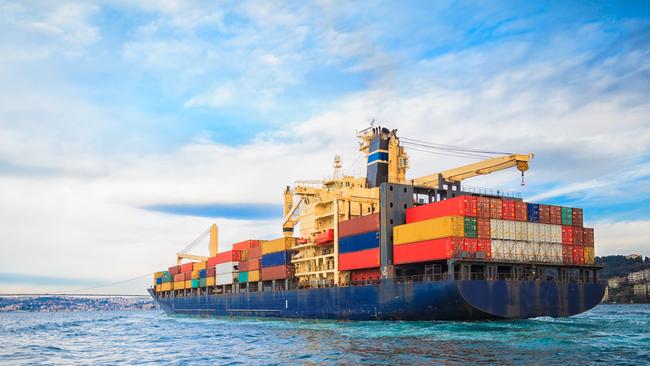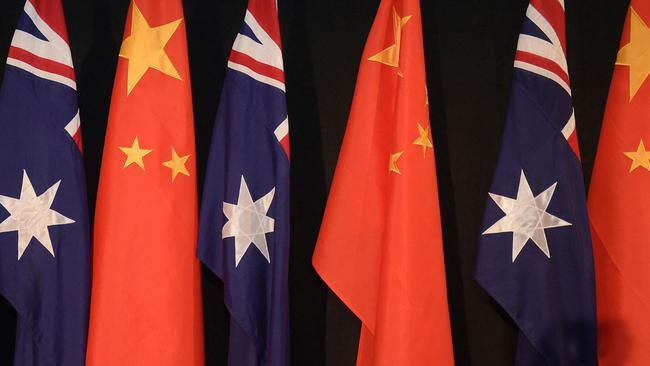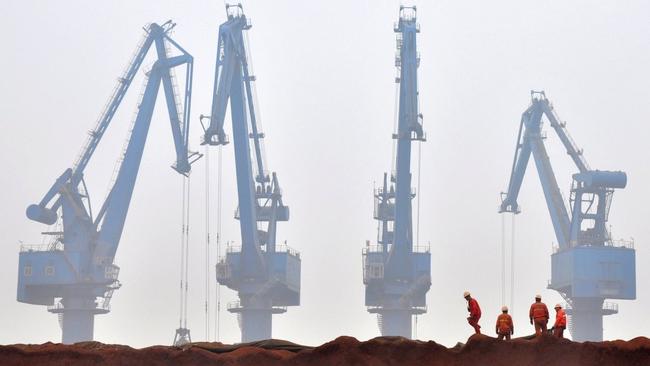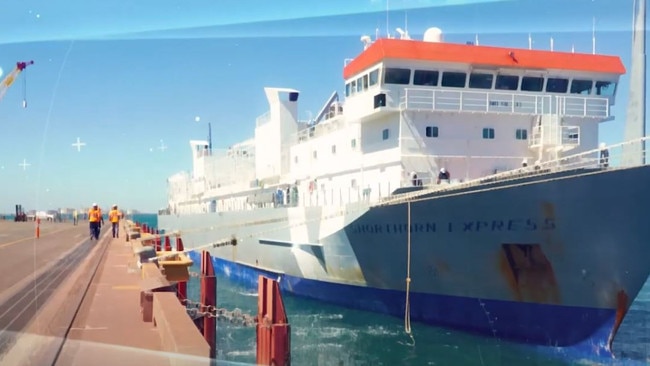
And at the same time, as the Australian budget makes it clear to China that its “punishment” of Australia is not working, Chinese rhetoric is coming more threatening, with the Communist party’s People’s Daily accusing Australia of having a “pathological obsession” with war against China.
We are not going to allow our dependence on China to turn us into a China lapdog and we should stand up for our interests and our beliefs while working with our friends in the region.
But we do need to recognise that now China believes it’s dealing with a looming war situation the next set of blows on Australia will be more severe and China will not care if those blows also hit China.
In that context the nation needs to be fearful, because in Canberra there is a group of aggressive politicians and public servants who want give China a good kick. In particular they want to forcibly acquire the Port of Darwin from the Chinese.

There is no doubt that it was a mistake to sell the Darwin port to China, given the American base nearby. But we did it, and given today’s high technology aerial spying, China and other developed nations can carefully study what is happening on the ground. China does not need the Port of Darwin for spying.
Australia’s dependence on China goes deep and we need to first recognise how extensive this dependence has become and then take steps to reduce it.
We all recognise the vital importance of iron ore exports at current prices to the national economy.
They not only give our taxation revenues a huge boost but the dividends and capital appreciation of BHP plus Rio Tinto and Fortescue have been a huge boost to Australian savings and spending.
China will have devised plans to slash or even eliminate Australian iron ore imports should our “pathological obsession with war against China” cause us to throw them out of the Port of Darwin.
It will be expensive for China but it has domestic iron ore mines albeit with a much lower grade than Australia and Brazil. Switching to those mines plus boosting Brazil is expensive but it can be done. Expropriating the China stake in the Port of Darwin is likely to trigger such an action. China would almost certainly accelerate its African iron ore production plans and increase its use of scrap.
The US and other nations will need China steel for infrastructure and they will just have to pay more.

But, given our dependence on China there are other, even more devastating ways to hit Australia.
China controls a vast amount of the ships that bring goods to Australia. The control comes first by direct shipping line ownership but second by China’s influence over non-China shipping lines.
China has already shown us that it has the power to cut off our shipping. In recent years the government has encouraged Chinese and other overseas shipping lines (we no longer have any worthwhile local shipping capacity) to drop their goods in Melbourne and Sydney and then take goods on board for Western Australia. Partly because foreign crews were used this slashed rail and road costs. The journey took longer but the ships took significant volume from both land transport avenues, but mainly rail. Accordingly rail operators have been lessening their capacity.
Then suddenly China snapped its fingers and the ships went straight back to China from our east coast. The China finger snap has caused rail volumes to explode beyond the reduced capacity.
If we force China out of its investment in the Port of Darwin it has the power to snap its fingers again and the number of ships coming to Australia will be slashed.

We still have a local manufacturing industry but it has been run down and so much of the economic activity that the budget is predicated on relies in goods coming in from China. The building industry is a prime example.
The spending by locals on tourism has offset some if the impact of overseas tourists coming to Australia and we are starting to mobilise the bringing in of non-Chinese students to Australia, perhaps in 2022.
But we will not be able to overcome a slashing of ships coming to Australia, or the impact of Chinese import bans on Australian iron ore.
And we should also remember that the Joint Strike Fighter/F-35 is no match for Chinese aircraft so we are reliant on the US F-22 and other US weapons to defend ourselves.
I am not in any way suggesting that China is going to invade but countries that have completely messed up their defence investment -- like Australia-- take a risk taunting a super power by expropriating their assets against their will.
Footnote: My commentary above has attracted a wide array of web site comments including many who have a different view. All are welcome. They led me to a fascinating story about the China lobster ban. Many of our lobsters are now being diverted to China via Vietnam through a so-called “grey market” of Chinese middlemen. The problem is that our exporters don’t know if the “grey market” will accept any shipment until it arrives. Our lobster fishers’ cost-breakeven is about $35 a kilo while the current “grey” price is about $70 a kilo. Before the China “ban” it was about $120 a kilo. So with all this uncertainty a number of quota holders are selling up their fishing rights. And guess who is buying them? China interests who want to be in the box seat then restrictions are lifted. Where else will they buy?








Behind the 2021-22 budget is the stark realisation that there are few nations in the world more dependent on China than Australia.